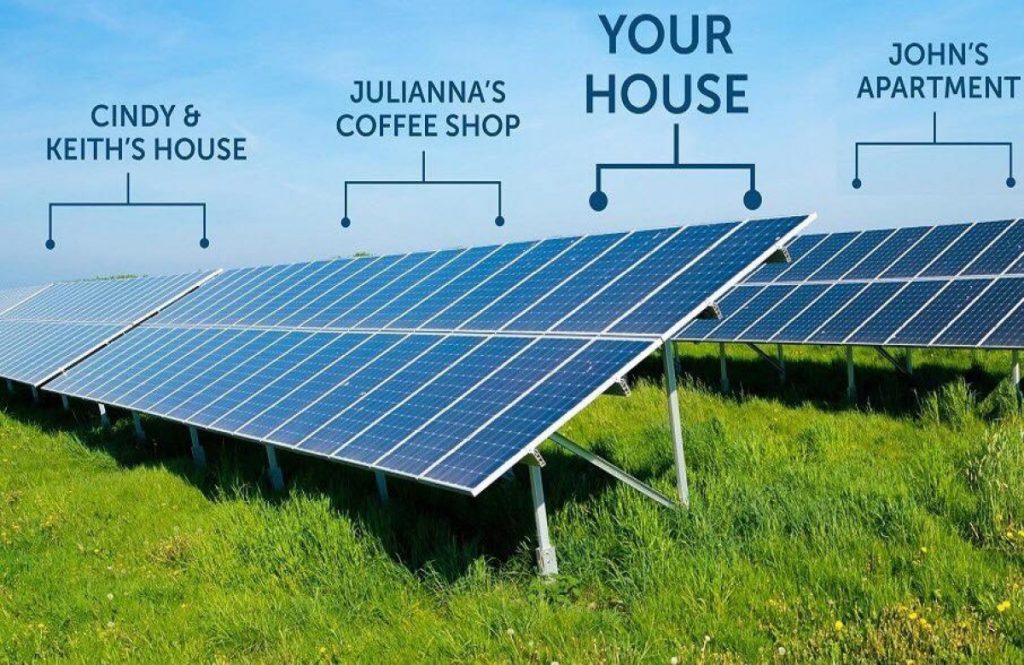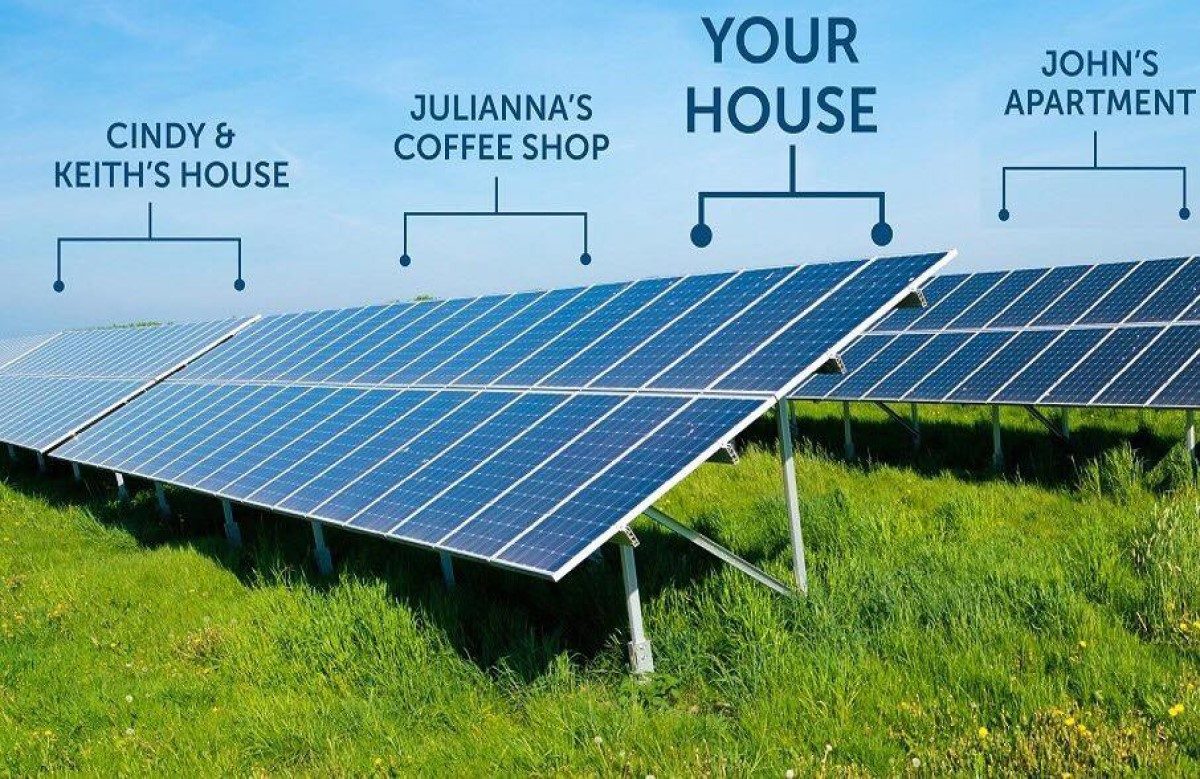 The Surf Coast Energy Group is exploring opportunities for a solar garden in the Surf Coast Shire. A solar garden is a large solar PV system in which individual panels are owned by electricity consumers. The electricity generated by the solar panels is credited to the owner’s household electricity bill, even though the panels are located elsewhere. While any electricity customer can participate in a solar garden, they enable people in rental accommodation to enjoy the benefits of owning solar PV. In terms of scale, a 2 MW solar garden on approximately ten acres of land could enable 500 rental households to own their own 4 kW solar system.
The Surf Coast Energy Group is exploring opportunities for a solar garden in the Surf Coast Shire. A solar garden is a large solar PV system in which individual panels are owned by electricity consumers. The electricity generated by the solar panels is credited to the owner’s household electricity bill, even though the panels are located elsewhere. While any electricity customer can participate in a solar garden, they enable people in rental accommodation to enjoy the benefits of owning solar PV. In terms of scale, a 2 MW solar garden on approximately ten acres of land could enable 500 rental households to own their own 4 kW solar system.
A recent study of six proposed solar gardens in Australia, however, concluded that these projects are not financially viable without a significant capital grant. This is largely because these projects cannot access the federal and state government subsidies and rebates that are available to owner occupied households who install rooftop solar. Similar financial support for renters buying into solar gardens is required to put them on equal financial terms with homeowners. Without this support, renters buying panels in a solar garden will have to pay nearly three times as much for solar than homeowners installing rooftop systems.
Until the financial incentives for homeowners are extended to renters who invest in solar gardens, renters who want to install rooftop solar must strike an agreement with their landlords. To assist, Solar Victoria will administer a new program to help landlords and tenants share the costs of installation. Under the program, the Victorian Government will cover 50% of the costs while the landlord and tenant will cover 25% each. To contribute their share, tenants will pay a small monthly levy over four years. The program will enable tenants to enjoy the benefits of solar PV at half the cost of owner occupiers (thanks to landlord contributions) but tenants will only receive the benefits for as long as they rent the property. To determine whether or not this investment is worthwhile, renters will have to calculate their annual electricity bill savings, see how long it will take them to recover their investment and consider how long they intend to remain in the property.
Solar gardens offer an alternative solution. When renters move to another property, they continue to own their own solar panels and receive credits on their new electricity bill. To make solar gardens viable, SCEG calls on state and federal governments to extend the solar subsidies and rebates that are paid to homeowners to renters who invest in solar gardens.
https://www.uts.edu.au/…/our-res…/energy-and-climate/social-

